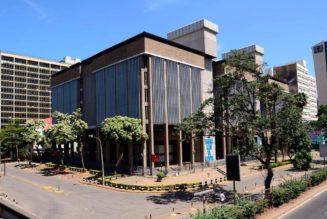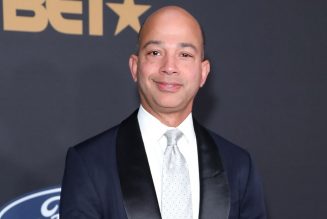Columnists
Development dialogue needed to end all-out climate culture wars
Friday September 15 2023

President of the Republic of Congo Denis Sassou Nguesso (left), Senegal President Macky Sall (right) and Rwandan President Paul Kagame (Centre) follow proceedings at Kenyatta International Convention Centre Nairobi on September 5, 2023, during day two of the Africa Climate Summit 2023. PHOTO | DENNIS ONSONGO | NMG
I am proud to work in public relations. It is a profession that is frequently criticised for obscuring the truth and avoiding giving straight answers.
Undoubtedly communications is misused in this way by those with something to hide. However, when communication is applied to be evasive, it is rarely effective, serving only to erode trust and widen division even further.
Communication is most effective when it is open and concerned with putting across a point of view supported by evidence, so stakeholders can make decisions based on information and not disinformation.
At this month’s Africa Climate Summit in Nairobi, there was sadly not enough of this open dialogue. Instead, we had all-out climate culture wars.
Battle lines were drawn between organisations, activists and commentators, with differing views on how to achieve the same goals.
While everyone wants to increase climate mitigation and adaptation measures that build resilience and benefit the continent’s most vulnerable communities, there are divergent views on how that should be achieved.
Broadly the camps fall into those that see the free market, institutional investment and international donor-led development with an emphasis on science, technology and innovation as the way forward; and those that favour less development, slower economic growth and a move away from technology and science towards more traditional, community-led development with a lower environmental impact.
These two armies in the development culture wars have been described as Wizards and Prophets. The Wizards believe that human ingenuity, developed over thousands of years, will find solutions.
Prophets feel the way forward is not to do more, but to do less. Reduce consumption, live simpler lives more in tune with nature and restore the balance we have destroyed through a relentless and unsustainable drive to increase GDP and living standards.
These two perspectives apply not just to reducing global temperatures. We also see them played out in areas such as African agricultural transformation; food systems; financial inclusion, infastructure development, the management of natural capital and many other social, economic and environmental challenges.
Of course it is right and healthy that leaders and actors in all these fields are held to account and scrutinised by the media and by those with opposing views.
In fact, knowing that eyes are on an organisation, can ensure high standards of accountability and governance are applied, keeping everyone on their toes. But what is not constructive are partisan attacks, led by ideology rather than by facts.
The real loser from rowing and disinformation is Africa itself, as those with the funds and resources apply conditions that may not be right for Africa’s unique needs and period in history.
Development, like love, should be unconditional. It should be Africa-led and right-sized for what Africa needs, not what others want Africa to do and be like.
This is where public relations and communications professionals can truly make the world a better place. We have the privileged position and opportunity to broker open dialogue between various actors and civil society, so the Wizards and Prophets can work in a complementary way to enable African-led, sustainable and transformative economic growth.
Chris Genasi is the Chairman of Hudson Sandler Africa.









